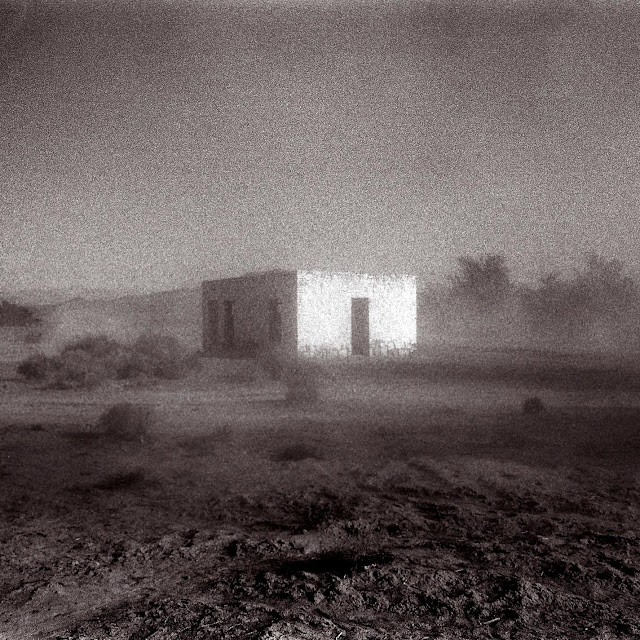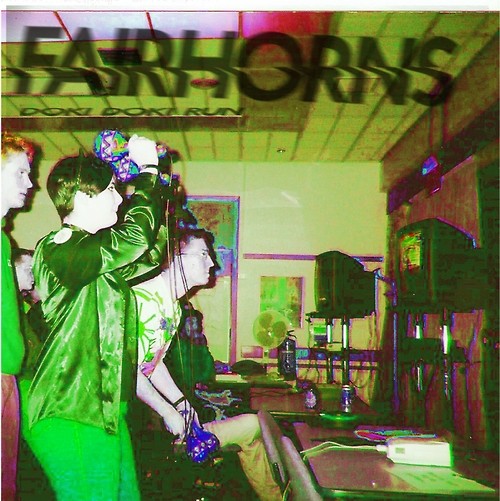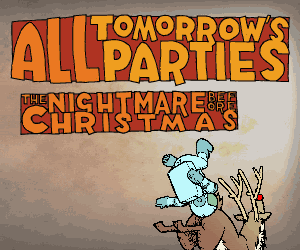
Not that Lewis Jr. belongs entirely to this day and age of feigned modernity: even adjudged purely aesthetically, quiffed and leathered he's the thrill-seeker; the stuntman to guide us through this retracing of his formative years, willing to wear his influences on his sleeve and moreover on the sleeve of Confess itself. The skid mark-stained pace to You Can Call On Me recalls Corey Hart's Sunglasses At Night; Run My Heart the more impassioned gushes of The Police or the more downtrodden – or at least crestfallen – admissions of "The Boss" (the fact that it strongly resembles Dancing In The Dark had Anthony Gonzalez been creatively active back in '84 to produce the thing is anything but shaded in ambiguity); the wompy bass-led romp of The One akin to Culture Club with the flamboyance and fluorescence toned down a touch and masterfully honed.
Careering into contemporary century, I Don't Care meanwhile comes across as Michael Hadreas weeping tears of mellifluousness all over a cross-pollination of Blue Jeans and Happy Ending with some martial thumping, musket blazing and primordial grunting thrown in for melodramatic measure. "I won't care/ Long as you can dance around the room while you lie to me", he honks through a quite nasal croon and although you sense an elaborate emotion-extorting con here unfolding, given such stagy histrionics (and they're consistently darn impeccably staged) it's nigh on impossible not to be swept away by its invigorating futuro-waltz ways. Similarly, however indebted to Gonzalez' latest it may be, Five Seconds may well be the best hunk of unabashed electropop nostalgia since Midnight City, effortlessly bettering the entirety of Chromatics' Kill For Love in one fell, four-minute swoop.
Yet it's tricky to envisage this existing without that (pl.) having preceded it and analogously, When The Movie's Over reflects the scrupulously coiffured Hayden Thorpe perfoming that quintessentially acrobatic hooting, howling and urbane yowling atop Jan Hammer's Crockett's Theme in the mirrored walls of a throwback karaoke bar manufactured thus in that it may extract any inner insecurities to magnified effect. Patient conversely mimics Nelly Furtado's Say It Right, had it been produced by naff synth stalwarts Pet Shop Boys in place of the clodhopping Timbaland, Lewis Jr.'s vocals again unrecognisably altered before giving way to an aspirational guitar solo – a hallmark of '80s extravagance that's largely minimised over the duration. He even sounds a little like the ever anguished Jamie Stewart on pulsating opener Golden Light.
Whether intentional or inadvertent therefore, vocally, imitation here intimates flattery and although Lewis Jr. may purvey a comprehensive versatility in that particular department, given this multi-faceted – or rather multi-voiced proclivity it becomes quite difficult to discern what he really sounds like. Mystifying, undoubtedly – as all icons ought to be – although equally maddening after protracted exposure. Perhaps the most intriguing element proposed by Confess therefore regards its longevity: how well will a record that belongs quite so unmistakably (and largely unapologetically) to another era altogether age, as all things must? The presupposition is, to be quite candid, that it shan't be an LP to last long in the mind nor MP3 and yet within the context of the here and now, each song should be regarded as an immaculate pop track profoundly entrenched in rich '80s propensities and propelled by all the sheen and sleaze that may entail. As such it ought to be celebrated as just that: a fleeting glide through time conjoining now and then; a both referential artefact and authentic contemporary article. Age and epoch are but social constructs at any rate, and a sporadically celebratory recording this is too.

Jamie Holloway.























